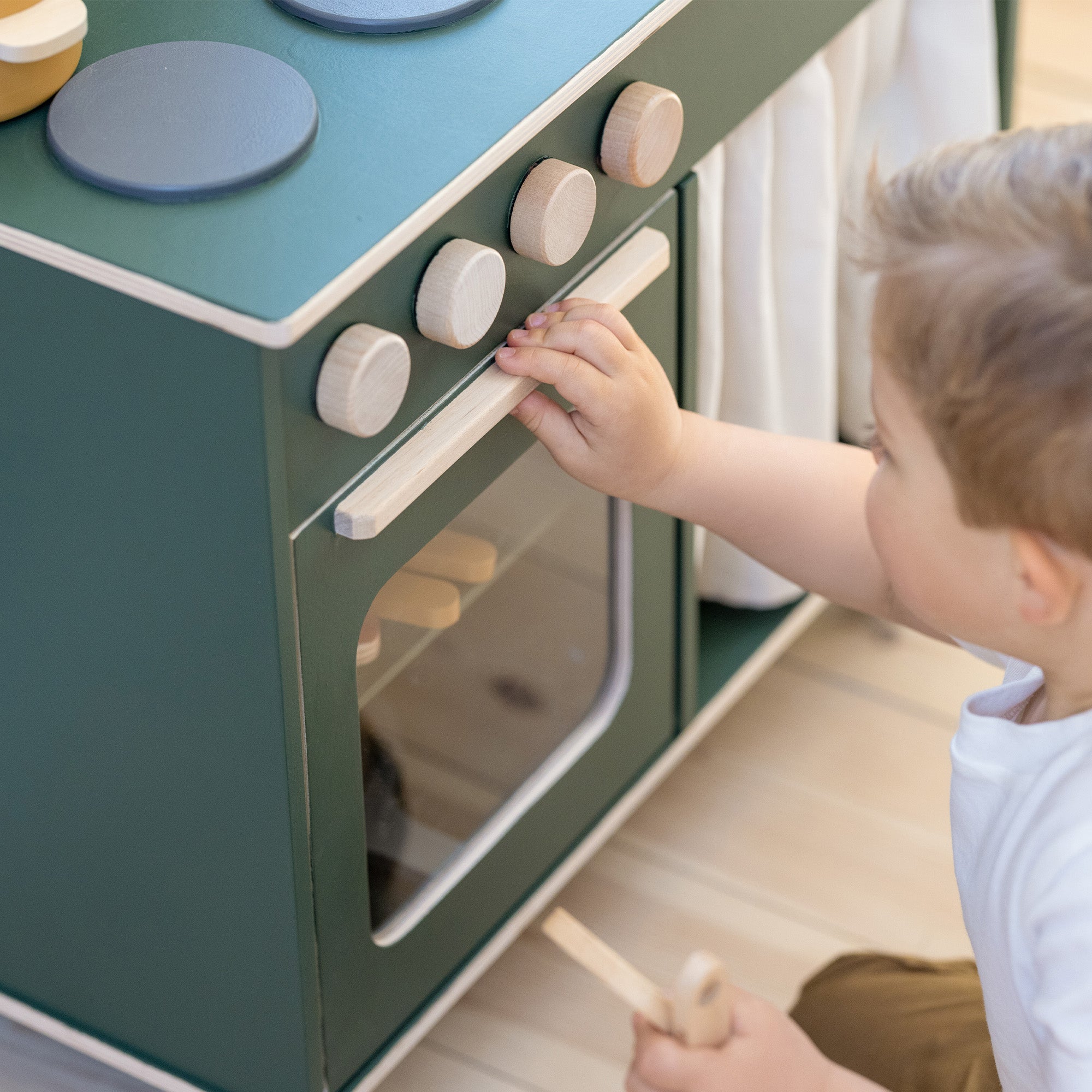A toy kitchen stimulates your child's imagination through role play and it’s the perfect place for your child to practice real life scenarios, like preparing dinner, doing the dishes, or making delicious desserts for friends and family. Read on to get an experienced family advisor’s tips on how to unlock this toy’s many play opportunities.
Highlights:
- The play kitchen is a great place for children to copy their Mom and Dad.
- When children imitate their parents, it’s their way of preparing for adulthood.
- Through role play, kids develop their imagination, social skills, and communication skills.
-
You can unlock the full potential of your child’s play kitchen by:
- Placing it near the kitchen – watch your little one copy your every move.
- Using the play kitchen during play time – try ordering a delicious (imaginary) dessert.
- Adding well-assorted accessories, like toy foods or decorations, to start new games.
A Great Place to Imitate Mom & Dad
First, let’s look at why it’s such a good idea to give your child a miniature kitchen to play with. Danish family advisor, Lola Jensen, shares some fascinating insights:
“The play kitchen is simply the best place to copy Mom and Dad. Back in the day, when parents worked closer to home, the little ones could easily follow around in their footsteps. Today, children see their parents working mostly on household tasks, and since dinner-making happens every day, it’s just the natural thing for little children to imitate,” says Lola Jensen.
“When children imitate their parents, it’s really their way of preparing for adulthood. In the play kitchen, they might pretend to be a grown-up, acting like a grown-up and speaking a grown-up’s words. Through role play, they develop not only their imagination but certainly also their social skills and communication skills,” continues Lola Jensen.
The family advisor has a few tips to unlocking the full potential of your child’s play kitchen:
Tip #1: Place it Near the Kitchen
If your child’s toy kitchen is in their bedroom, start by moving it into your dining area or, even better, into your kitchen. This way, you make it easy for your little chef to observe your every move and directly copy and paste real-life kitchen work when they role play in their own kitchen.
Tip #2: Use the Play Kitchen for Play Time
With little children especially, you can’t expect them to be absorbed in a play kitchen game while you prepare dinner. They want to be where you are, preferably on your arm or directly beside you on the kitchen counter. But when you finish dinner, you can watch them mimic the things you did or said while you were together in the kitchen. Encourage your child’s playing by ordering a delicious (imaginary) dessert or “doing the dishes” together.
Tip #3: Add Well-Assorted Accessories
With colourful play fruits, vegetables, cakes, and the like, your child’s make-believe game really comes alive, and your child’s vocabulary expands with words like “cucumber”, “bell pepper”, “strawberries”, and many more. Add some birthday decorations and pretend it’s Teddy’s birthday. Suddenly your involved in a make-believe party, singing, clapping hands, and exchanging gifts with your little one. Who’s ready for a piece of birthday cake?

